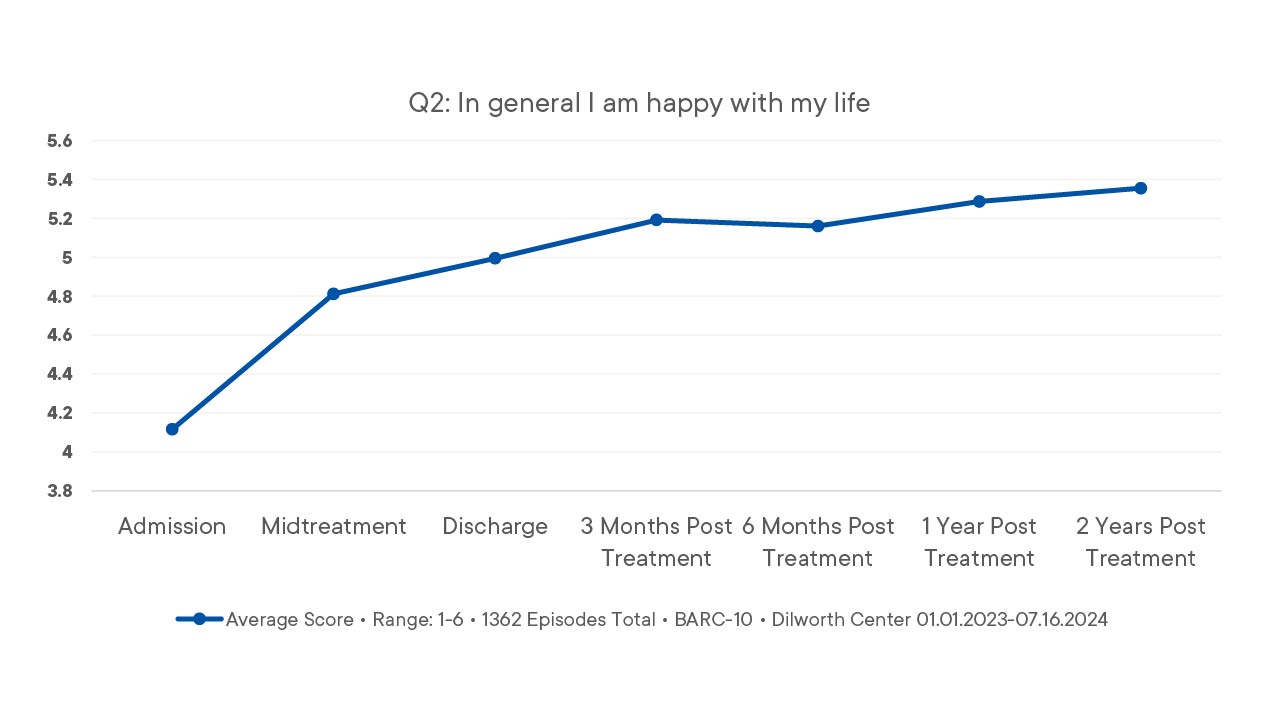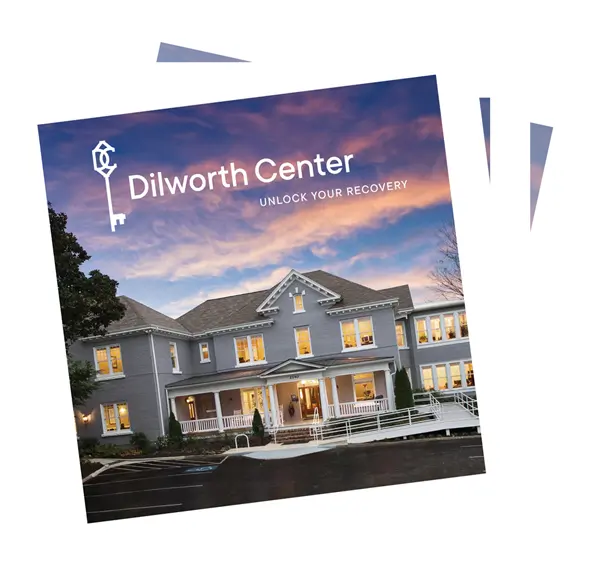Your Mental Health Matters
We are committed to providing holistic and comprehensive treatment that addresses both addiction and co-occurring mental health conditions.
Our staff has over 280 years of combined experience in the field of mental health and addiction.
Expert Care
- An industry recognized addiction psychiatrist known for his ability to treat complicated addiction and mental health disorders
- Licensed Clinical Mental Health Counselors
- Licensed Clinical Social Workers
- Licensed Clinical Addiction Specialists
- Master Addiction Counselors
- Certified Clinical Supervisors
- Certified Alcohol And Drug Counselors
- Certified Clinical Trauma Professionals
- Certified Trauma Professionals


View the short video by Dilworth Center CEO and President, Charles Odell, as he speaks about how we address mental health disorders.
At Dilworth Center, we understand that addiction is often accompanied by mental health issues, which can complicate the recovery process. That’s why we are committed to providing holistic and comprehensive treatment that addresses both addiction and co-occurring mental health conditions.
We believe that treating mental health conditions alongside addiction is crucial for long-term recovery and overall well-being. By addressing addiction and co-occurring mental health simultaneously, our treatment approach allows for a more complete and effective recovery journey.
If you’re here, you don’t have to do this alone.
Struggling with drugs or alcohol can feel overwhelming, especially when it’s hard to tell if there’s something deeper going on. But no one has to wait for things to get worse before reaching out for help. Recovery isn’t just about stopping substance use—it’s about understanding what’s beneath it and finding a way forward. Whether it’s for yourself or someone you care about, support is available, and a life free from addiction is possible.
If you or a loved one is struggling with addiction and co-occurring mental health conditions, do not hesitate to reach out. We are here to support you every step of the way. Contact Dilworth Center today and take the first step toward comprehensive healing.
Treatment Works
Lasting Recovery and Increased Happiness
Through rigorous data analysis, we highlight the significant progress our patients make during their treatment journey. One key metric is the response to the question, “In general, I am happy with my life.” This data demonstrates the effectiveness of our programs in improving the overall well-being of our patients. This graph shows the average response to that question consistently improving for our patients from admission to 2 years after treatment.


Learn more about our Outcomes Measurement here.
Treating mental health conditions alongside addiction is important for several reasons:

1. Enhanced Recovery
By addressing the root causes of addiction and mental health issues simultaneously, we provide a greater chance of long-term, robust recovery. Treating one without the other may lead to relapse or the reemergence of untreated mental health symptoms.

2. Improved Well-Being
Properly managing mental health conditions facilitates, improves, and increases emotional stability, coping skills, and overall well-being. Our evidence-based therapies, including 12-step facilitation, cognitive-behavioral therapy (CBT), motivational interviewing (MI) and group counseling, help patients develop healthier coping mechanisms and a more positive mindset.

3. Integrated Care
At Dilworth Center, we take an integrated approach to treatment. Our team collaborates closely to ensure that addiction and mental health treatment plans are aligned and complementary. This integrated care model allows for a more comprehensive understanding of each individual’s unique needs and ensures that no aspect of their recovery is overlooked.

4. Relapse Vulnerability
Mental health conditions can significantly impact an individual’s vulnerability to relapse. By addressing these issues, we provide patients with the tools and strategies needed to maintain sobriety and avoid potential triggers or self-destructive behaviors. Our relapse prevention program aims to help patients identify core beliefs and triggers, allowing them to learn how to avoid addiction and mental health crises.

5. Overall Quality of Life
Treating mental health conditions concurrently with addiction leads to an improved quality of life. Patients not only experience relief from substance use, but also gain better control over their emotions, relationships, and daily functioning.
Dilworth Center is dedicated to providing personalized treatment plans that prioritize both addiction and co-occurring mental health conditions. Our compassionate team is committed to empowering individuals on their journey to recovery, by helping them develop the skills and resilience needed for a healthier, happier life.








